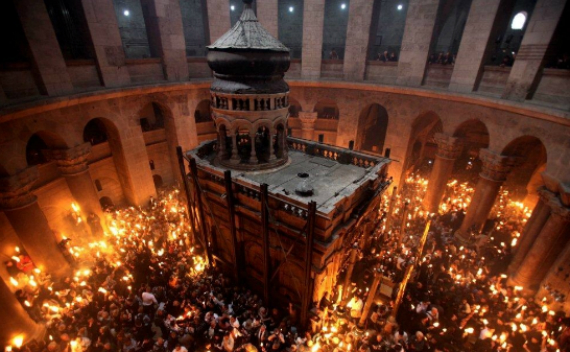Christianity in the Middle East
More on:

The decline of Christianity in the Middle East is a painful but not a new subject. The Christian community in Lebanon must now live under the shadow of Hezbollah. The Iraqi Christian community has been reduced by many estimates from one million to half that number. And now, Egypt’s Copts are facing violence that has led many thousands to flee and will surely bring many more to take the same step.
Last week the European Parliament adopted a resolution accusing both the Egyptian and Syrian governments of persecuting Christians. On Egypt the resolution says
Since March 2011, tens of thousands of Coptic Christians have reportedly left Egypt. On 9 October, at least 25 were killed and more than 300 wounded in Cairo during a peaceful march organised by Copts. Parliament strongly condemns the killing of protestors in Egypt, and stresses the importance of an independent and transparent investigation. Authorities should ensure that Copts do not fall victim to violent attacks and can live in peace and freely express their beliefs throughout the country, the resolution says. MEPs call for protection of churches, to put an end to their destruction and to continuous aggression by Islamic extremists.
On Syria, the European Parliament adds
MEPs are also deeply concerned about the situation of Christians in Syria. The resolution notes that thousands of Iraqi Christians went to Syria to escape targeted violence in Iraq. Nevertheless, the Christian population in Syria may have dropped from 10% to 8% of the total. Parliament condemns actions inciting inter-confessional conflict, urges Syrian authorities to provide reliable and efficient protection for the Christian communities, and expresses support for Christians in the country.
The difficulty Christians face in countries throughout the Middle East does have one exception: Israel. Only in the Jewish State are Christian communities thriving.
An AP story last week reported that
The past two decades, however, have seen one of the most significant influxes of Christians into the Holy Land since the Crusades, and it has created a wholly new Christian landscape shaped by the realities of Israel. The newcomers include guest workers from dozens of different countries who provide the economy with cheap labor, and asylum-seekers from Sudan, Eritrea and elsewhere in Africa who sneak across the border from Egypt. And for the first time, there is a significant population of non-Arab Christian Israeli citizens, mainly immigrants from the former Soviet Union who, unlike Arabs, are fully assimilated into the Jewish Israeli mainstream….On a recent Sunday, the chapel at the Ratisbonne monastery in downtown Jerusalem rang with the sound of hymns in Tagalog, one of the languages of the Philippines.
There are many thousands of newly arrived Roman Catholics, Russian Orthodox, Ethiopian Orthodox, and other groups and the new situation produces novelties like a Catholic catechism and Russian Orthodox services in Hebrew. "The Church never dreamed of such an arrival,” says one Orthodox priest.
So while Christians are thriving in Israel they are under intense pressure in many neighboring Muslim countries. Europeans, and American enemies of Israel like the famous professors Walt and Mearsheimer, most often attribute American support for Israel to the “Jewish lobby.” But American Christians know more about the Middle East than these supposedly sophisticated critics, and are aware of the fate of their coreligionists. They see Christianity free to grow in Israel, and faced with violence and suppression nearby. They see Christians free to worship in Israel but fleeing all too many Arab lands. There’s no need for complicated political science analyses here, much less bigotry: those seeking to understand why American Christians overwhelmingly support Israel should study the treatment and the fate of Christianity in the Middle East.
More on:
 Online Store
Online Store
